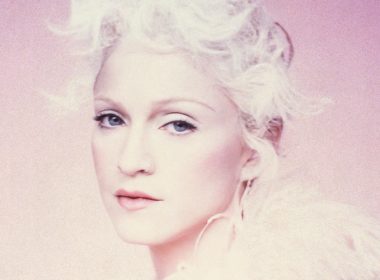Kelly Clarkson‘s come a long way in just under a decade.
After becoming the first (and let’s be real, still easily the best) winner of American Idol in 2002, the singer first made her official mark with 2003’s Thankful, a debut collection complete with safe-yet-amazing post-Idol balladry (“Anytime”), soulful R&B-pop offerings (“Just Missed The Train”) and slightly rambunctious, attitude heavy pop-rock anthems, including “Miss Independent” and “Low.”
The runaway success of the latter two singles quickly helped to sculpt the sound of what would become Clarkson’s grand opus in 2004: Breakaway, one of the most defining pop records of the ’00’s–a pristine collection of electrifying pop-rock anthems produced by Max Martin, Dr. Luke and Ben Moody including “Behind These Hazel Eyes” and “Since U Been Gone” that officially shed the singer’s Idol image and quickly made Clarkson’s name synonymous to any and all things angst-pop.
Following the record-breaking success of Breakaway came My December in 2007. Generally dubbed as Clarkson’s “rebel moment,” Kelly opted to breakaway (pun!) from the familiar pop mold of her past and go a slightly less radio-friendly route, penning tougher, darker, and more revealing rock tracks than ever before. The album’s development led to a very heated, very public head-to-head power struggle between Clarkson and Sony BMG label head Clive Davis, who very openly professed his lack of faith in Clarkson’s upcoming release. And while My December–which spawned “Never Again” and the devastating power ballad “Sober”–was by no means a failure (in fact, it was generally received more favorably by critics than Breakaway), its performance was ultimately underwhelming.
In 2009, Clarkson returned once more with her fourth studio album, All I Ever Wanted. It was another strong release (as with every Clarkson album) and a smash hit, although marked with a certain by-the-numbers familiarity, including safe, radio-friendly anthems (“My Life Would Suck Without You”) and Katy Perry album rejects (“I Do Not Hook Up”). The album’s own cover painted the album’s narrative perfectly, featuring an uncomfortable Clarkson forced to half-smile against a schlocky, candy-coated Photoshop background. It was, in effect, a quiet acknowledgement that Davis had won this round.
Two more years have passed since then, leading to Clarkson’s fifth studio release: Stronger–the most perfect representation of harmony achieved.
Combining the power-pop anthems and radio friendly accessibility of Breakaway with the darker confessional appeal of My December, Stronger plays like the perfect marriage between artistic intent and label demand. It’s an effortless combination–counterbalancing the threat of overindulgence by an artist gone unchecked and the “sell-out” sound of a label with too many hands in the cookie jar–resulting in one of the strongest, most triumphant and wholly satisfying records of the year.
To craft Stronger, Clarkson and her team enlisted a solid collection of tried-and-true songwriters (Bonnie McKee, Ester Dean, Busbee) and incredible pop producers, including Toby Gad, Oligee and Greg Kurstin–the man responsible for the album’s three most major moments: “What Doesn’t Kill You (Stronger),” “Dark Side” and “Honestly,” which isn’t just an album highlight, but one of the most haunting songs Clarkson’s ever recorded.
“Could you love somebody like that?/Could you attract someone like that?” Clarkson slowly croons above a chilly, swirling electronic undercurrent, all complimented by a teary-eyed piano-led bridge, chilling howls in the background and some of Clarkson’s most devastating vocal delivery to date. It’s an utterly awe-inspiring number, the album’s greatest departure musically, and a particular highlight on the record.
“Dark Side” is another instant favorite: From the ingeniously twisted toy box introduction to the almighty crashing chorus (“Everybody’s got a dark side/Do you love me?/Will you love mine?”), the Kurstin-produced track is the very definition of a Breakaway-meets-My December brand of brilliance.
More than ever before in Clarkson’s discography, Stronger relies heavily on live instrumentation and unpolished vocals to emulate the concert experience. Similar to what Beyonce hoped to achieve with 4 earlier this year, Clarkson made it clear that her new album would include plenty of live instruments and forgo excessive Auto-Tune and vocoders in order to, in Clarkson’s own words, avoid the “compressed” sound of some of her older hits from a mixing standpoint. “I wanted this record to sound like my live vocals,” she told Metro.
Countless moments throughout–the jam session flow of “Hello,” the unrestrained emotion-wrought yelps of “Honestly,” the furiously storming bridge of “You Can’t Win”–surge with the same kind of raw energy you’d expect to hear at any Clarkson concert.
Interestingly, the album’s Brian Kennedy-produced lead single “Mr. Know It All” is probably one of the album’s riskiest single selections (and truthfully, one of its weaker moments). Like “Breakaway,” the song is breezier than the rest of the accompanying album’s contents, floating along a delicate melody recalling Bruno Mars “Just The Way You Are.” The song is thoroughly gorgeous, but despite my initial thoughts about the song, it’s admittedly nothing that would ever inspire much enthusiasm outside of Clarkson’s devoted fan base.
But if “Mr. Know It All” is Stronger‘s “Breakaway,” then “What Doesn’t Kill You (Stronger)” is the album’s “Since U Been Gone”: Set above a cool stream of synthesizers, Stronger‘s title track is easily the album’s most instantaneous, explosive anthem: “What doesn’t kill you makes you stronger, stand a little taller, doesn’t mean I’m lonely when I’m alone,” the singer yelps as the song lurches into its massive, fist-pumping chorus. “Stronger” is Stronger‘s strongest, most empowering moment–a fitting focal point, no doubt.
And while Stronger‘s brand of empowerment isn’t so much in the sense of embracing yourself as it is about, say, about dusting yourself victoriously after a broken heart, there’s still one incredibly satisfying number included that does directly address that flaws-and-all attitude: “You Can’t Win,” an anthem that more than a few of today’s pop stars probably wish they could write.
Instead of patronizing listeners with trite “feel good”-isms, Clarkson cleverly goes in from the opposite end: “If you’re straight, why aren’t you married yet?/If you’re gay, why aren’t you waving a flag?/You can’t win,” the singer angrily recounts. It’s the same message with a refreshing spin: People won’t just judge you for being you, but for not being you enough. You’ll never win, so just do you!
“Let Me Down” is yet another incredible moment; a sauntering explosion of crashing drums and guitars that remains as unbelievably listenable as it did back when it leaked back in early July. “You’re only gonna let me down/When it counts, you count down,” Clarkson unleashes with an earth-shattering roar during the chorus as her frustration mounts.
Then there’s “You Love Me,” one of the album’s most anticipated tracks after Clarkson first declared it to be her favorite song she’s ever recoded during a live stream Q&A with fans earlier this summer.
Set on top of a strumming beat that brings both The Police‘s “Every Breath You Take” and The Sugababes greatest non-single of all time “Ace Reject” to mind, Clarkson spouts out against the guy that’s done her wrong for almost a decade and counting: “You said you love me, but that I’m not good enough,” she bitterly barks as she spills her heart out on top of the ’80’s-esque beat. And while it’s not my favorite of all time (yet, anyway), it’s certainly an incredible song that finds Clarkson exploring new musical ground–all the more impressive given that she apparently wrote the song in 15 minutes.
Further into the album, Clarkson sinks her teeth into ballad territory. And while the album’s true highlights are the uptempo tracks, its the gorgeous comedowns in between–including the stunning “Standing In Front Of You” with its nearly Imogen Heap-like chorus and the Country-tinged album closer “Breaking Your Own Heart”–that prevent Clarkson’s mighty flame from burning too quickly.
If Stronger ever really falters, it’s lyrically–as with “Einstein,” which suffers from a bout of mathematical metaphor overload (“Simple math, our love divided by the square root of pride”) and a particularly cringe-worthy chorus (“Dumb plus dumb equals you”). While the song’s soulful swagger (which brings Thankful‘s “You Thought Wrong” to mind) is completely spot-on, the lyrics are slightly too juvenile in comparison to the rest of the record. And I know Kelly ain’t Shakespeare, but silly metaphor plus silly metaphor equals…well, kind of hard to take seriously.
The occasional lyrical misstep aside, Stronger remains an absolute victory, and the powerhouse singer still sounds just as flawless as she ever did before. Clarkson’s rich, melodic vocals continue to prove why she stands several rungs above every other modern female pop star, ranking her amongst the very greatest singers of our time, including Whitney Houston, Celine Dion and Mariah Carey, but without a trace of ego: She is, essentially, the ultimate non-diva diva.
In today’s climate “It Gets Better”-style pop, music has come to feel more like a trendy marketing ploy than a genuine outpouring of concern. Yet Stronger stands a cut above the rest within today’s of-the-moment anthems, holding true to the same self-empowerment Clarkson’s harnessed since the early ’00’s–from the confident sass of “Mr. Know It All” to the soldiering “The War Is Over,” in which she defiantly declares: “All I have to say is you don’t deserve me.”
Despite the bumps and bruises along the way, Stronger wholeheartedly lives up to its title.
Stronger was released on October 24. (iTunes)






